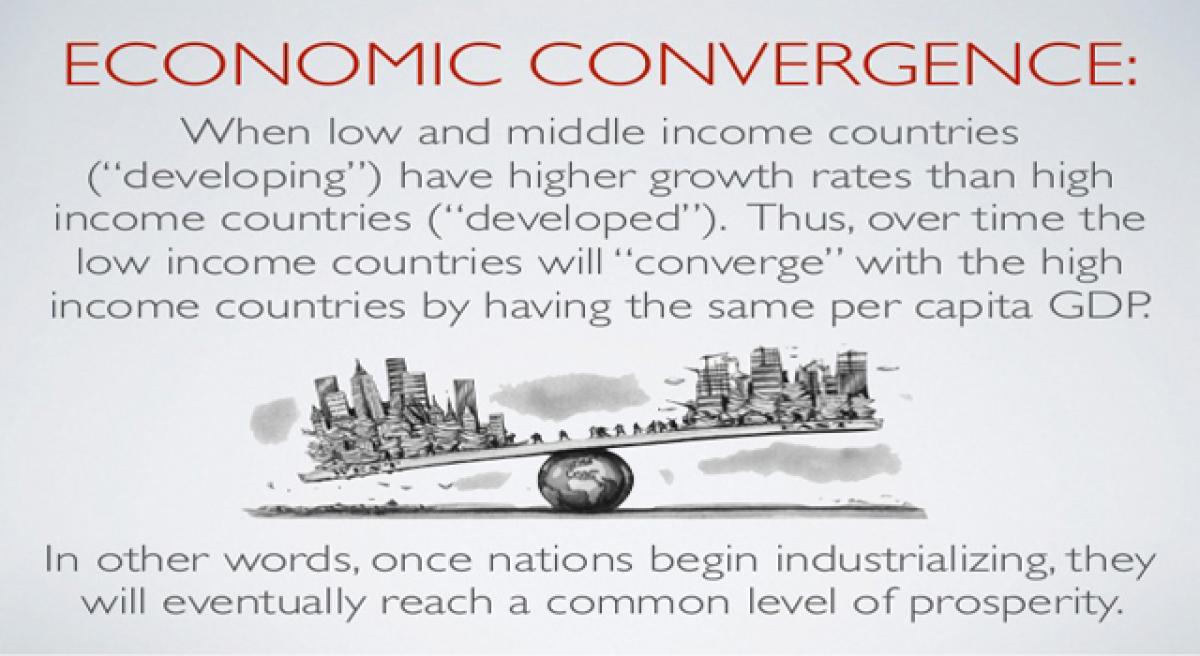Economic Convergence

The idea of convergence in economics (also sometimes known as the catch-up effect) is the hypothesis that poorer economies\' per capita incomes will tend to grow at faster rates than richer economies.
The idea of convergence in economics (also sometimes known as the catch-up effect) is the hypothesis that poorer economies' per capita incomes will tend to grow at faster rates than richer economies.
As a result, all economies should eventually converge in terms of per capita income. Developing countries have the potential to grow at a faster rate than developed countries because diminishing returns (in particular, to capital) are not as strong as in capital-rich countries. Furthermore, poorer countries can replicate the production methods, technologies, and institutions of developed countries.
In economic growth literature the term "convergence" can have two meanings. The first kind (sometimes called "sigma-convergence") refers to a reduction in the dispersion of levels of income across economies.
"Beta-convergence" on the other hand, occurs when poor economies grow faster than rich ones. Economists opine that "unconditional beta-convergence" or "absolute beta-convergence" exists when the growth rate of an economy declines as it approaches its steady state.
According to Jack Goldstone, "in the twentieth century, the Great Divergence peaked before the First World War and continued until the early 1970s, then, after two decades of indeterminate fluctuations, in the late 1980s it was replaced by the Great Convergence as the majority of Third World countries reached economic growth rates significantly higher than those in most First World countries", thus the present-day convergence should be regarded as a continuation of the Great Divergence.
There are three types of Convergence-Absolute Convergence: Lower initial GDP will lead to a higher average growth rate. The implication of this is that poverty will ultimately disappear 'by itself'. It does not explain why some nations have had zero growth for many decades like in Sub-Saharan Africa; Conditional Convergence: A country's income per worker converges to a country-specific long-run level as determined by the structural characteristics of that country.
Thus, foreign aid should focus on infrastructure, education and the financial system and not in any form of income transfer; Club Convergence: It is possible to observe different "clubs" or groups of countries with similar growth trajectories. Most importantly, several countries with low national income also have low growth rates.

















